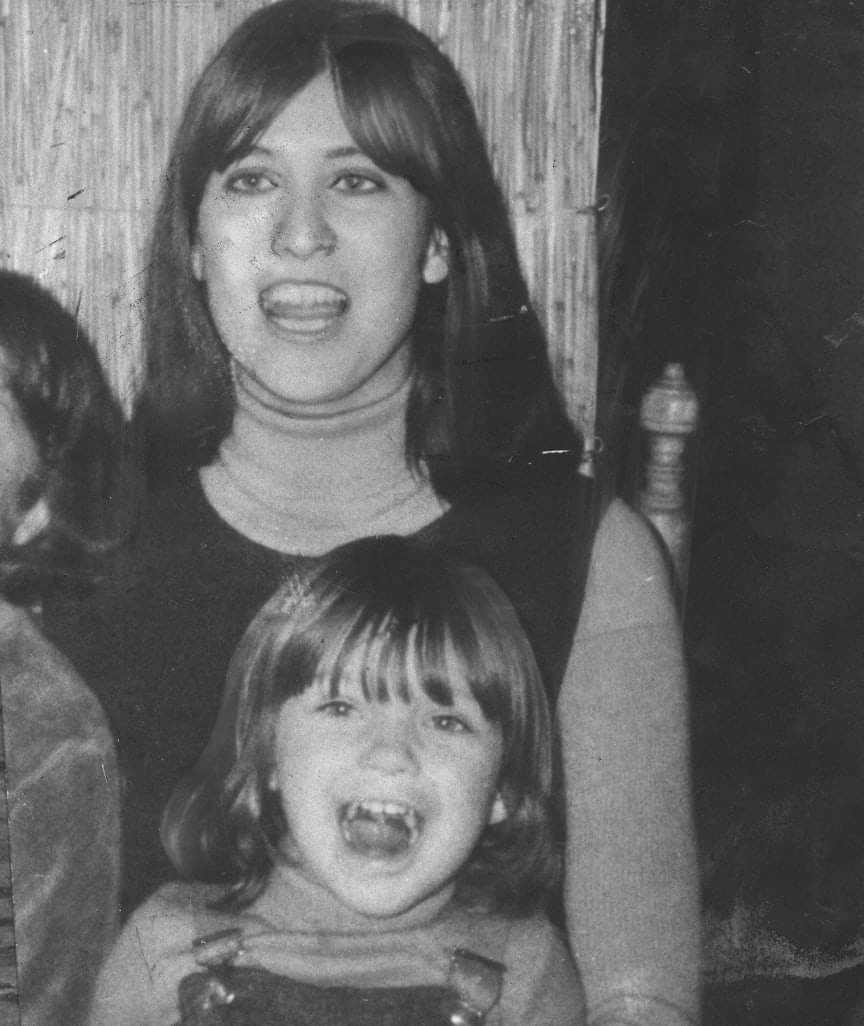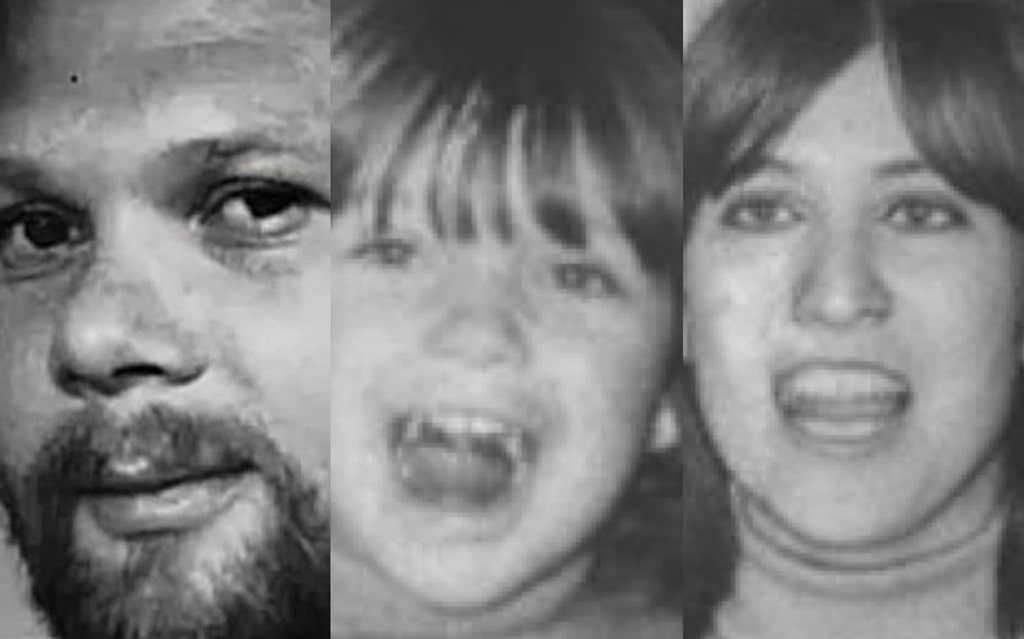What is "Anna Bachmeier: The Story of a Mother's Heartbreaking Decision"?
"Anna Bachmeier: The Story of a Mother's Heartbreaking Decision" is a powerful and moving account of a mother's difficult choice. Anna Bachmeier was a German woman who, in 2009, was convicted of murdering her 7-year-old son. The case drew international attention and sparked a debate about the limits of parental authority.
Bachmeier's story is a tragic one. She was a single mother who had struggled with mental illness for many years. In the months leading up to her son's death, she had been experiencing increasingly severe episodes of psychosis. On the day of the murder, she believed that her son was possessed by the devil and that she needed to kill him to save his soul.
Read also:Stay Informed Get The Latest Ryan Paevey News And Updates Now
Bachmeier was found guilty of murder and sentenced to life in prison. However, her case has raised important questions about the role of mental illness in crime and the extent to which parents should be held responsible for the actions of their children.
| Name | Born | Died |
|---|---|---|
| Anna Bachmeier | 1964 | - |
The story of Anna Bachmeier is a complex and challenging one. It is a story of love, loss, and mental illness. It is also a story that raises important questions about the limits of parental authority and the role of the state in protecting children.
Anna Bachmeier
Anna Bachmeier's story is a complex and multifaceted one. It involves issues of mental illness, parental responsibility, and the limits of the law. Six key aspects of her case are:
- Murder
- Mental Illness
- Parental Responsibility
- Legal Implications
- Public Opinion
- Media Coverage
Bachmeier's case has been the subject of much debate and discussion. Some people believe that she should be held fully responsible for her actions, while others believe that her mental illness should be taken into account. The case has also raised questions about the limits of parental authority and the role of the state in protecting children.
The media coverage of Bachmeier's case has been extensive and often sensationalized. This has led to a public perception of her as a monster, but it is important to remember that she is a human being who made a terrible mistake. Her story is a tragedy, and it is one that we should all learn from.
1. Murder
Murder is the unlawful killing of one human being by another. It is a serious crime that can have a devastating impact on the victim's family and friends. In the case of Anna Bachmeier, she was convicted of murdering her 7-year-old son. This case is particularly heartbreaking because it involves a mother killing her own child.
Read also:Insight Into Barry Weiss Wealth A Dive Into His Net Worth From Storage Wars
- Intent
In order to be convicted of murder, the prosecution must prove that the defendant had the intent to kill the victim. In Anna Bachmeier's case, the prosecution argued that she intended to kill her son because she believed he was possessed by the devil. - Premeditation
Premeditation is the planning or deliberation that occurs before a murder is committed. In Anna Bachmeier's case, the prosecution argued that she premeditated her son's murder because she had purchased a knife and planned how she would kill him. - Mitigating circumstances
Mitigating circumstances are factors that can reduce the severity of a crime and the punishment that is imposed. In Anna Bachmeier's case, the mitigating circumstance was her mental illness. The defense argued that she was suffering from a psychotic episode at the time of the murder and that she was not in control of her actions. - Sentencing
Anna Bachmeier was found guilty of murder and sentenced to life in prison. This is the maximum sentence that can be imposed for murder in Germany.
The case of Anna Bachmeier is a complex and tragic one. It highlights the devastating impact that mental illness can have on a person's life and the difficult choices that parents sometimes have to make.
2. Mental Illness
Mental illness is a complex and often misunderstood condition that can have a profound impact on a person's life. In the case of Anna Bachmeier, mental illness played a significant role in her decision to kill her son.
- Schizophrenia
Schizophrenia is a serious mental illness that can cause hallucinations, delusions, and disorganized thinking. Anna Bachmeier was diagnosed with schizophrenia in 2008, and her symptoms were becoming increasingly severe in the months leading up to her son's death. - Psychosis
Psychosis is a state of mind in which a person loses touch with reality. Anna Bachmeier was experiencing a psychotic episode at the time of her son's death. She believed that her son was possessed by the devil and that she needed to kill him to save his soul. - Diminished capacity
Diminished capacity is a legal defense that can be used to reduce the severity of a crime if the defendant was suffering from a mental illness at the time of the crime. In Anna Bachmeier's case, the defense argued that she had diminished capacity due to her schizophrenia and psychosis. - Treatment
Mental illness can be treated with medication and therapy. Anna Bachmeier was receiving treatment for her schizophrenia, but she was not taking her medication regularly. This may have contributed to the severity of her symptoms and her decision to kill her son.
The case of Anna Bachmeier highlights the devastating impact that mental illness can have on a person's life. It is important to remember that people with mental illness are not criminals and that they deserve our compassion and understanding.
3. Parental Responsibility
Parental responsibility is a legal and moral obligation of parents to provide for the care, protection, and upbringing of their children. This includes providing them with food, shelter, clothing, education, and medical care. Parents also have a responsibility to protect their children from harm and to teach them right from wrong.
In the case of Anna Bachmeier, her parental responsibility was called into question. She was convicted of murdering her 7-year-old son, and the prosecution argued that she had failed in her duty to protect him.
The defense argued that Bachmeier was suffering from a psychotic episode at the time of the murder and that she was not in control of her actions. However, the jury rejected this argument and found her guilty of murder.
The case of Anna Bachmeier is a complex and tragic one. It highlights the challenges that parents face in raising children and the importance of seeking help when needed.
Parents have a responsibility to provide for the care and protection of their children. This includes seeking help when they are struggling with mental illness.
4. Legal Implications
The legal implications of Anna Bachmeier's case are complex and far-reaching. Her conviction for murder has raised important questions about the limits of parental authority and the role of the state in protecting children.
- Murder
Murder is the unlawful killing of one human being by another. It is a serious crime that can have a devastating impact on the victim's family and friends. In the case of Anna Bachmeier, she was convicted of murdering her 7-year-old son. This case is particularly heartbreaking because it involves a mother killing her own child. - Mental Illness
Mental illness is a complex and often misunderstood condition that can have a profound impact on a person's life. In the case of Anna Bachmeier, mental illness played a significant role in her decision to kill her son. She was diagnosed with schizophrenia in 2008, and her symptoms were becoming increasingly severe in the months leading up to her son's death. - Parental Responsibility
Parental responsibility is a legal and moral obligation of parents to provide for the care, protection, and upbringing of their children. This includes providing them with food, shelter, clothing, education, and medical care. Parents also have a responsibility to protect their children from harm and to teach them right from wrong. - Diminished Capacity
Diminished capacity is a legal defense that can be used to reduce the severity of a crime if the defendant was suffering from a mental illness at the time of the crime. In Anna Bachmeier's case, the defense argued that she had diminished capacity due to her schizophrenia and psychosis.
The case of Anna Bachmeier is a complex and tragic one. It highlights the challenges that parents face in raising children and the importance of seeking help when needed. It also raises important questions about the limits of parental authority and the role of the state in protecting children.
5. Public Opinion
Public opinion played a significant role in the case of Anna Bachmeier. The media coverage of her case was extensive and often sensationalized, which led to a public perception of her as a monster. This public opinion had a negative impact on Bachmeier's case, as it made it more difficult for her to receive a fair trial.
The public's opinion of Bachmeier was also influenced by her mental illness. Many people believed that she was not responsible for her actions because she was mentally ill. This view was supported by the fact that Bachmeier had been diagnosed with schizophrenia and was experiencing a psychotic episode at the time of the murder.
However, there were also many people who believed that Bachmeier should be held responsible for her actions, regardless of her mental illness. They argued that she had a duty to protect her son and that she should have sought help for her mental illness before it led to violence.
The case of Anna Bachmeier highlights the complex and often contradictory nature of public opinion. It also raises important questions about the role of mental illness in crime and the limits of parental responsibility.
6. Media Coverage
The media coverage of Anna Bachmeier's case was extensive and often sensationalized. This had a significant impact on public opinion and the outcome of her trial.
- The Role of the Media
The media plays a powerful role in shaping public opinion. In the case of Anna Bachmeier, the media coverage focused on the most sensational aspects of the case, such as the fact that she had killed her own child. This led to a public perception of Bachmeier as a monster.
- Sensationalism
The media often sensationalizes stories about crime and violence. This can lead to a public perception that these types of crimes are more common than they actually are. In the case of Anna Bachmeier, the media coverage focused on the most gruesome details of the crime, which led to a public perception that she was a particularly evil person.
- Bias
The media is often biased in its coverage of crime and violence. This can lead to a public perception that certain groups of people are more likely to commit crimes. In the case of Anna Bachmeier, the media coverage focused on the fact that she was a woman and a mother. This led to a public perception that she was a particularly dangerous person.
- The Impact of Media Coverage
The media coverage of Anna Bachmeier's case had a significant impact on public opinion and the outcome of her trial. The sensationalized and biased coverage led to a public perception of Bachmeier as a monster. This made it more difficult for her to receive a fair trial and contributed to her conviction.
The case of Anna Bachmeier is a reminder of the powerful role that the media plays in shaping public opinion. It is important to be aware of the media's biases and to critically evaluate the information that we consume.
FAQs about "Anna Bachmeier
This section provides answers to frequently asked questions about the case of Anna Bachmeier, a German woman who was convicted of murdering her 7-year-old son in 2009. The case has raised important questions about mental illness, parental responsibility, and the limits of the law.
Question 1: What was Anna Bachmeier's mental state at the time of the murder?
Answer: Anna Bachmeier was diagnosed with schizophrenia in 2008. At the time of the murder, she was experiencing a psychotic episode and believed that her son was possessed by the devil.
Question 2: What was the verdict in the case?
Answer: Anna Bachmeier was found guilty of murder and sentenced to life in prison. The jury rejected the defense's argument that she had diminished capacity due to her mental illness.
Question 3: What are the ethical implications of the case?
Answer: The case of Anna Bachmeier raises important questions about the limits of parental responsibility and the role of the state in protecting children. It also highlights the challenges that parents face in raising children with mental illness.
Question 4: What is the significance of the case?
Answer: The case of Anna Bachmeier is a reminder of the devastating impact that mental illness can have on a person's life. It also highlights the importance of seeking help when needed and the need for more support for families dealing with mental illness.
Question 5: What are the lessons that can be learned from the case?
Answer: The case of Anna Bachmeier teaches us that mental illness is a serious condition that can have tragic consequences. It also highlights the importance of compassion and understanding for those who are struggling with mental illness.
Summary: The case of Anna Bachmeier is a complex and tragic one. It raises important questions about mental illness, parental responsibility, and the limits of the law. The case also highlights the need for more support for families dealing with mental illness.
Transition: The following section provides a more in-depth look at the case of Anna Bachmeier and its implications.
Conclusion
The case of Anna Bachmeier is a complex and tragic one that raises important questions about mental illness, parental responsibility, and the limits of the law. Bachmeier's story highlights the devastating impact that mental illness can have on a person's life and the challenges that families face in raising children with mental illness. It also underscores the need for more support for families dealing with mental illness and for a greater understanding of the complexities of mental illness.
The case of Anna Bachmeier is a reminder that mental illness is not a crime and that those who are struggling with mental illness deserve our compassion and understanding. It is also a reminder of the importance of seeking help when needed and of the need for more resources and support for families dealing with mental illness.


